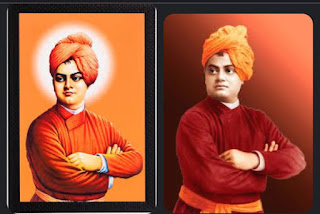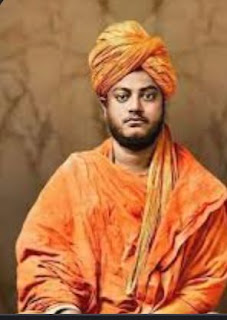The biography, age, early life, career, and lifestyle of Swami Vivekananda.
Born in Kolkata, India on January 12, 1863, under the name Narendra Nath Datta, Swami Vivekananda was a well-known Indian philosopher, sage, and spiritual leader. He is mostly
credited with bringing yoga, vedanta, and Hindu philosophy to the West. Through his teachings, Vivekananda inspired millions of people and was instrumental in reestablishing India's spiritual legacy with the rest of the globe. He also promoted the idea of universal brotherhood.
CHILDHOOD AND EDUCATION
Vivekananda came from a traditional Bengali household with strong Hindu values. His mother, Bhuvaneshwari Devi, was a devoted housewife, while his father, Viswanath Datta, practiced law at the Calcutta High Court. Narendra grew up with a strong affinity for spirituality and a great deal of
empathy for people who were suffering. His insatiable reading habit exposed him to a broad spectrum of topics, including physics, literature, philosophy, and history.
At the age of 18, Vivekananda began his formal education at the Scottish Church College in Kolkata. It was during this time that he met Sri Ramakrishna Paramahansa, a prominent spiritual leader of the time, whose teachings greatly influenced Vivekananda's spiritual journey. His association with Sri Ramakrishna profoundly transformed him and marked the beginning of a lifelong spiritual quest.
AUTOMATION ALONG WITH EDUCATION
Following the death of Sri Ramakrishna, Vivekananda gave up material belongings and devoted his life to spiritual activities. He then became a
wandering monk. The various religious and cultural traditions that existed in India were better understood by him as a result of his trips there. In spite of this diversity, Vivekananda was adamant that all religions might be united because they all share the same fundamental principles.
In 1893, Vivekananda's journey took him to the Chicago Parliament of Religions in the United States, where he delivered his famous speech on religious tolerance and universal brotherhood. His eloquent speech mesmerized the audience and introduced the world to the rich spiritual philosophies of India. This defining moment marked the beginning of his international acclaim and established him as a prominent spiritual leader.
Swami Vivekananda emphasized the importance of merging spirituality with practicality. He firmly believed that spirituality should not be detached from the concerns of society, but rather should be applied to create a better world. Vivekananda's teachings emphasized self-realization, the power of meditation, and the concept of ‘seva’ (selfless service). He sought to awaken the innate divinity within every individual and encourage them to actively contribute to the betterment of society.
HERITAGE AND IMPACT
Through his legacy, Swami Vivekananda continues to inspire millions of people around the world, transcending boundaries of
geography, culture, and religion. His thought was based on the notion that one must alter oneself in order to influence the world. The teachings of Vivekananda were crucial in bringing back to life India's spiritual consciousness, which had been eroding for years as a result of years of colonization and the imposition of foreign ideologies.
Furthermore, individuals from all walks of life were moved by Vivekananda's message of spiritual peace and worldwide fraternity. Renowned intellectuals and statesmen including Leo Tolstoy, Jamsetji Tata, Mahatma Gandhi, and Rabindranath Tagore were greatly influenced by his ideas. His spiritual influence had a significant impact on the
Indian independence struggle, which in turn shaped the country's future.
Swami Vivekananda's contributions extended beyond spirituality. He also played a crucial role in empowering women, advocating for education and equal rights. Vivekananda firmly believed that society could only progress when women were provided with equal opportunities and treated as equals. His progressive views laid the foundation for the women's liberation movement in India.
COMPLETED DECISION
Swami Vivekananda's life served as evidence of his steadfast commitment to spirituality, interfaith harmony, and social change. Millions of people are still motivated by his ideals to pursue personal development, cultivate compassion, and look for spiritual truth. The
teachings of Swami Vivekananda establish unity in a divided society and encourage people to discover harmony among variety by bridging the gap between Eastern and Western philosophy. His deeds and words illuminate humanity, proving the transformational potential of spirituality when applied to everyday situations.
















0 Comments